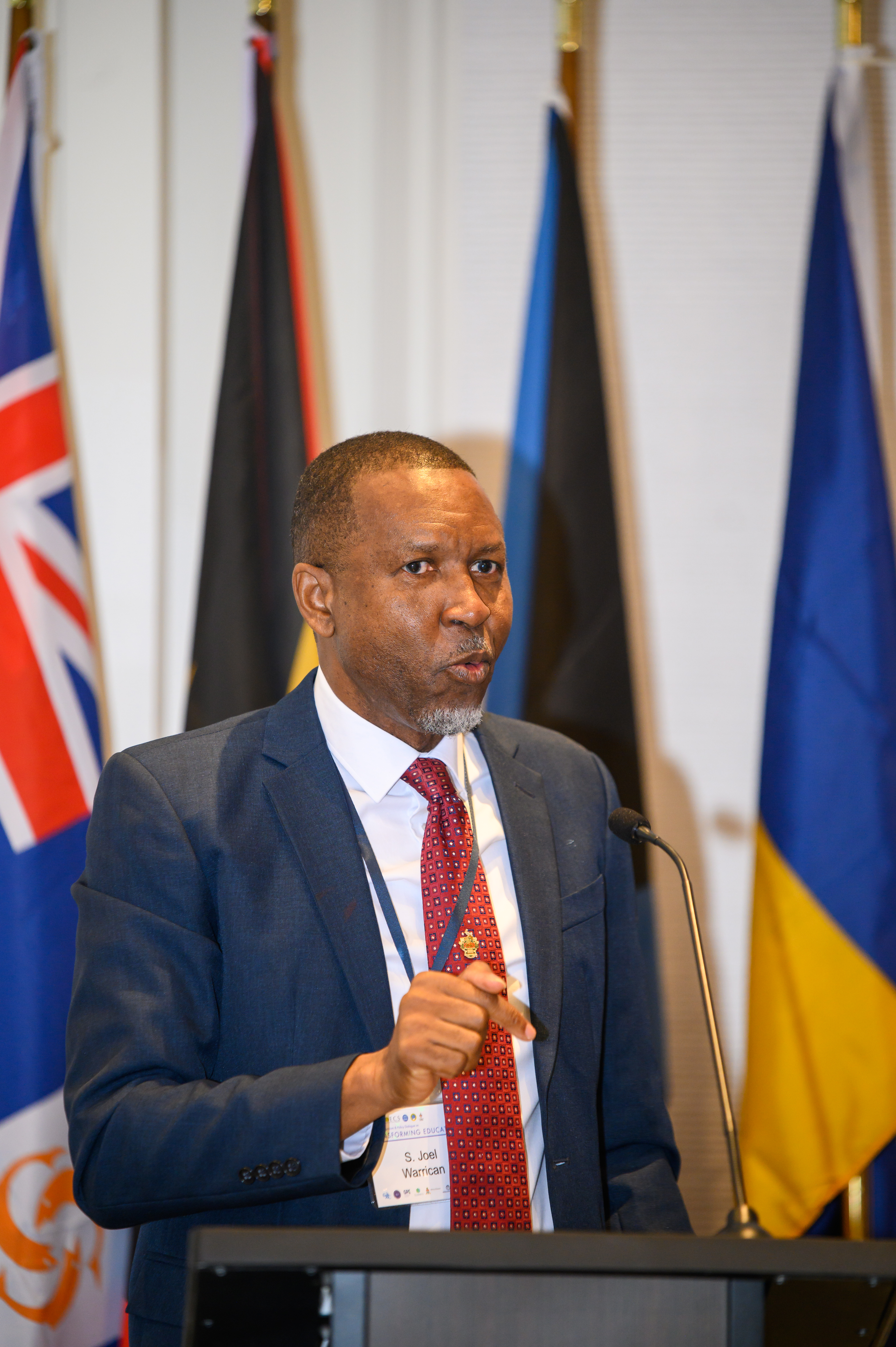Integrating Technology, Culturally Relevant Curricula, Strong Communication Skills Necessary to Transform Caribbean Education

Integrating technology into teaching, making curricula culturally relevant, emphasising critical communication skills, assessing students for learning rather than certification, and encouraging teacher adaptability are the bold strategies needed to revolutionise Caribbean education, according to Professor Joel Warrican, Director of the Caribbean Educational Research Centre.
In his address during the keynote session Indigenising and Decolonising Education for National and Regional Transformation, delivered during the Regional Symposium and Policy Dialogue on Transforming Education on Wednesday, 3 October 2024, Professor Warrican argued that the colonial legacy of “divide and conquer” hierarchical school structures, Eurocentric curricula, and an overreliance on rote learning have created a stratified society in the Caribbean that has also stifled entrepreneurial mindset across the region.
“If we didn't have a problem, we wouldn’t be doing education as we do it today. We have children leaving school just wanting a job because our education system did not encourage entrepreneurial thinking,” The University of the West Indies-based educator remarked.
To achieve meaningful transformation in Caribbean education, Professor Warrican, who holds a Ph.D. in Education, Language, and Literacy, called for courageous leadership and creativity. He emphasised that mistrust of locally generated solutions remains a major barrier to progress, urging the region to move away from elitism and classism and adopt a unified, research-driven approach to policymaking for sustainable change.
“The worst thing to me is to see the insularity that exists in the Caribbean; that we all want to operate on our own; we all want to tick our own boxes, to say we have done this rather than coming together and working together. There is no reason why any single Caribbean country - and we are all talking the same language about transformation - there is no reason why we shouldn’t be tackling education transformation as a group as region, not as a country,” he stressed.
Professor Warrican also encouraged stakeholders to embrace homegrown innovation that meets international standards and reduce dependence on donor-funded models. He called for a long-term financial commitment to ensure sustainable transformation within the region’s education system.
The three-day Regional Symposium and Policy Dialogue on Transforming Education, hosted by the Caribbean Development Bank (CDB) in collaboration with the Caribbean Community (CARICOM) Secretariat, the Organisation of Eastern Caribbean States Commission, and The University of the West Indies, marked the beginning of a month-long series of events aimed at advancing the education transformation agenda in the region.

